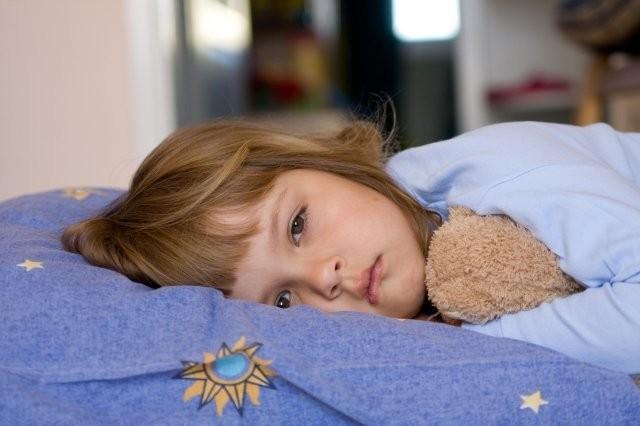Study: Insomnia in children may continue until adulthood .. What is the solution?
Dubai, United Arab Emirates (CNN) - Adolescence is a very important stage of physical growth and self -discovery, but it may be the most important stage to monitor insomnia for your child as well..
Children who slept 7 hours or under the age of nine years are more likely to suffer from insomnia two and a half times in the youth stage, that is, 24 years old as an average rate, compared to the commitment to normal sleep time during their childhood, according to a new study published in the Journal of Pediatrics "Pediatrics", Thursday.
Those who suffered from insomnia during adolescence, 16 years old as an average, were five and a half times more likely to exacerbate their insomnia when they reached, compared to teenagers who slept normally.
The authors of the study indicated that this research is the first long -term study to describe the development of symptoms of insomnia in childhood to adulthood, through the adoption of subjective and objective measurements.
قد يهمك أيضاًSleep legend for 8 hours..This is how our ancestors slept
"Based on our previous studies and other studies, we did not expect the symptoms of insomnia in nearly 40% ofThese 9 -year -old children until they reach the early 24 -year puberty..
Fernandez Mendoza told CNN that this is a much higher percentage than what was previously thought, adding that "we should not expect the symptoms of insomnia during the growth phase, at least in a large percentage of children..Rather, we must consider adolescence a precise growth stage that the symptoms of insomnia worsen until they are..Chronic clinical condition ".
The researchers monitored the study period in the study during their first laboratory visit between 2000 and 2005, and the second between 2010 and 2013, from the moment of "extinguishing lights", that is, between 9 and 11 pm, until the moment of "running lights", that is, between 6 and 8 am, using a layoutSleep, which is a test that records the brain waves, the level of oxygen in the blood, the heart rate, breathing, leg movements and eye during sleep.
In the third poll, which was conducted between 2018 and 2021, all the participants had reached the age of adulthood and reported that they usually slept 3.5 hours and 11 hours a day..
Poor children's sleep
The authors wrote that the symptoms of insomnia that moved to adolescence are often determined by behavioral or biological factors during the growth period.

Fernandez Mendoza pointed out that people who suffer from insomnia tend to spend a long time in bed, or do things other than sleeping, and these behaviors are likely to have been acquired early..
قد يهمك أيضاًStudy: Melatonin's eating to sleep is common..Despite its great health harm
He explained: "Nevertheless, one of the main insomnia mechanisms is hyper, which is understood as a biological defect in the symptoms of stress and brain centers that control waking/ vigilance.".
It is known that adolescents have this type of excitement.Other factors such as sex, race, and social and economic condition can affect symptoms of insomnia.
Manage and treat symptoms of insomnia
The study stresses the importance of treating insomnia in children "urgently, and trying to overcome the problems that may lead to insomnia or lack of sleep," according to Dr. Robin Lloyd, pediatrician's sleep doctor at the Mayo Clinic Group, who is not involved in the study..
Lloyd said: "We look at insomnia not only the result of physical challenges, but also as a result of mental health challenges," Lloyd said..
He explained that there is a tendency to have a two -way relationship between the two, because we are witnessing in people with mental health problems, who face sleep problems;And people with sleep problems we notice that they suffer from mental health problems.
قد يهمك أيضاًWhat do you do when you can't sleep?Here are 9 healthy habits to help you overcome insomnia
Lloyd added that the focus on "good habits and behaviors that we can control, especially in childhood and adolescence, will generate good behaviors and positive habits of adulthood.".
And if you have a teenager who always feels tired, this is not a good thing, according to Led, who explains that this exhaustion may result from a sleep disorder, or the biological clock rhythm or mental health problems that affect sleep.
Parents, teachers, and pediatricians must address these indicators immediately.
Fernandez Mendoza advised to consult a pediatrician and behavioral health service provider, if any.
There are safe behavioral treatments, based on evidence, effective, and can be implemented under the supervision of a trained doctor to make children sleep independently without resistance to bedtime, or a parent's need to sleep in the room.
قد يهمك أيضاً9 food recipes help you overcome insomnia and sleep better
As for adults, cognitive behavioral therapy (CBT-I) is a "first treatment line for insomnia disorder.Many scientists and doctors treat insomnia in adolescents using CBT-I ".
"Whenever we enter early for insomnia, it is better.Sleeping medications should be a reserve therapy..
One of the most important tips is to control the use of devices or time in front of the screen.
Lloyd recommended that the American Academy of Pediatrics be followed to reduce the screen time during relaxation to calm the minds.
The concept of regularity is an important time for both children and youth.It includes maintaining a fixed sleep schedule, in addition to a quiet, dark, and cold room.










